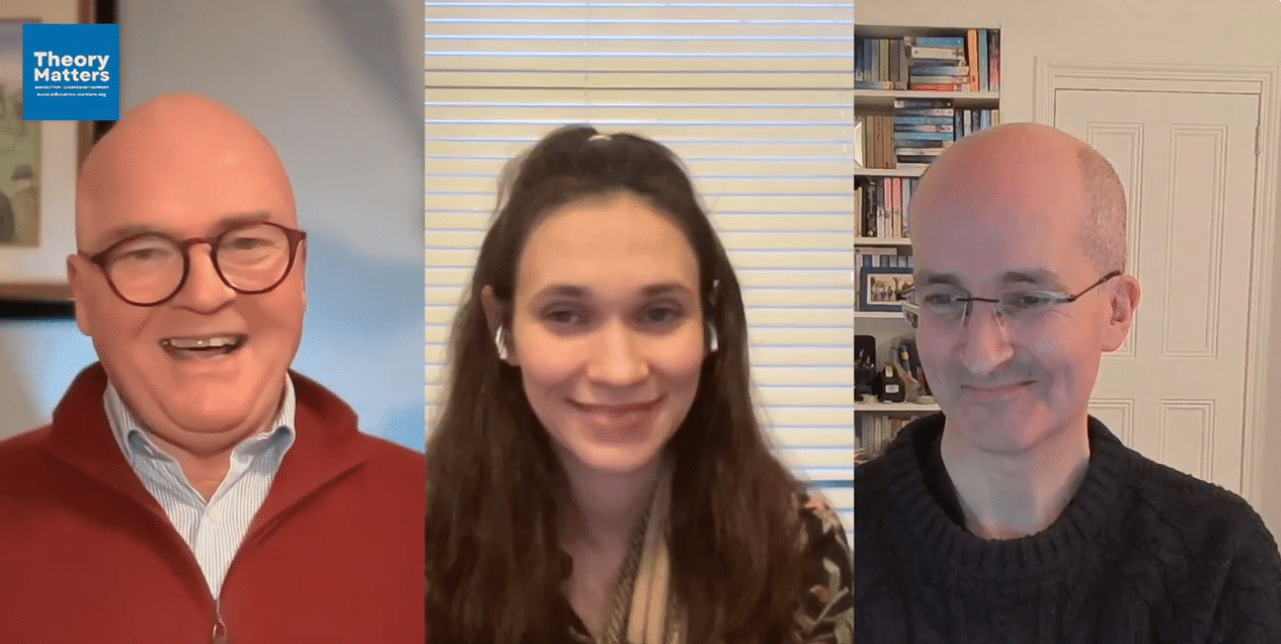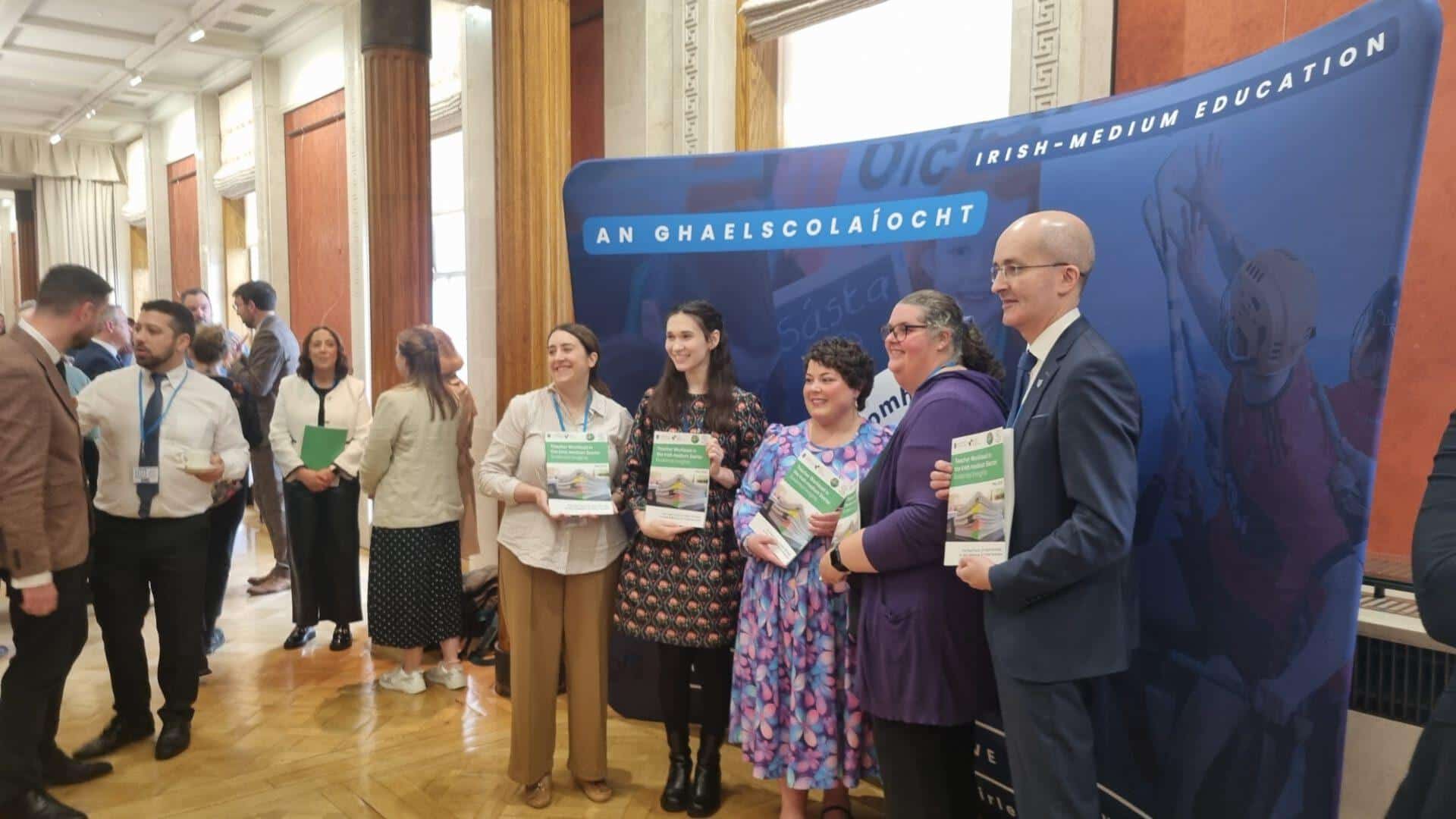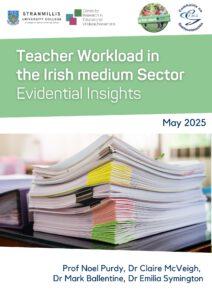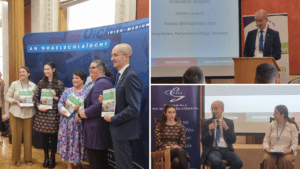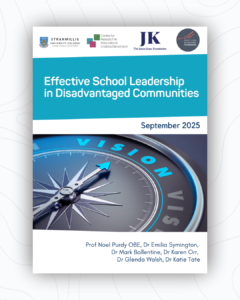In this latest CREU blog, Dr Emilia Symington, Prof Noel Purdy, Mrs Lois Totton and Dr John Hunter share findings from a qualitative study capturing the experiences of special school principals in Northern Ireland as they led their schools through the unprecedented challenges of the Covid-19 pandemic.
On 23 March 2020, all schools across Northern Ireland closed in response to the Covid-19 pandemic, following public health guidance aimed at limiting transmission. This initial lockdown period extended through to the end of the summer term. Only the children of parents identified as ‘key workers’ and those deemed vulnerable were eligible to attend school in person during this period (Purdy et al., 2023). Schools reopened in late August 2020, but by early October, over 1,500 Covid-19 cases had been reported across school settings. Amid rising concerns and growing public pressure, the Northern Ireland Executive made the decision to close schools again in January 2021. However, unlike during the first lockdown, special schools were instructed to remain open for face-to-face provision (CYPSP, 2022).
Against the backdrop of this disruption to the education system, transfer tests for admission into post-primary schools were postponed. The resulting uncertainty exposed and deepened existing tensions around academic selection, as documented in reports such as Testing Times and Transfer Talks (Purdy et al., 2023; Purdy et al. 2024). More broadly, evidence from the Social Mobility Commission (2021) and two reports on parental experiences of homeschooling during lockdown (Walsh et al., 2020; Purdy et al., 2021) highlighted the disproportionate impact of school closures on disadvantaged and vulnerable pupils. Meanwhile, internationally, a major study led by Lundy et al. (2021) drew attention to the global implications of the pandemic for children’s rights and participation in decision-making.
Much has been written about the educational impact of the Covid-19 pandemic (e.g. EEF, 2022. However, much less has been said about the efforts of special school leaders during that ongoing period of immense challenge, despite some attention in England (Sharp and Skipp, 2022) and the Republic of Ireland (Kinsella et al., 2024).
This small-scale qualitative study set out to document for the first time the experiences of special school leaders in Northern Ireland in particular. The data collection process adopted a dyadic approach. Initially, a focus group was assembled with special school principals in June 2022. There were ten participants, and the focus group lasted for an hour. This was followed by an online qualitative survey distributed to 39 special schools in September 2022. A further six responses were received for the survey: five from special school principals and one from a special school vice-principal. They had each been in their respective leadership positions for an average of eight and a half years, ranging from three to sixteen years individually. Analysis was undertaken thematically, addressing three key questions.
What were the particular challenges facing the special school sector in Northern Ireland during the pandemic, and how did these change as time went on?
During the first lockdown, schools in Northern Ireland were required to close for all pupils except vulnerable/at risk children and the children of essential/key workers from 23 March 2020 through to 30 June 2020. This included all special schools. However, during the second lockdown (from January 2021 to March/April 2021), all special schools were required to remain open for all pupils, while mainstream schools remained closed, as before, except for vulnerable/at risk children and the children of essential/key workers.
This raised a number of significant challenges for special school leaders, including an increase in administrative requirements, frequent changes required to the school structure in order to accommodate changing policies, and concern regarding the vulnerability of the children in their care. However, the main challenge reported by special school senior management was staff shortages due to sickness and anxiety. One participant mentioned that approximately 20 members of staff were taken off the rota in the first few months of the pandemic because they were unable to work. Another survey respondent said that at least one class in their school was closed every day during the initial months after schools first reopened fully in September 2020, because there weren’t enough staff to keep all classes open. Although the risk of contracting the virus lessened following the introduction of the vaccine, staff absence was still cited as one of the main challenges faced by special schools in 2022.
The staff still working face-to-face in special schools during the pandemic also described significant feelings of isolation due to the lack of social opportunities. One participant mentioned that their staffroom had to be converted into a classroom in order to accommodate social distancing, which meant staff had to spend their lunch break in their cars. This, coupled with the need to keep social bubbles ‘separate’, led to an increase in isolation and was damaging to working relationships. The participants described this period as incredibly stressful, particularly for those staff still working; not only were they expected to ensure provisions were consistent without sufficient staff in place, but there was also a perpetual anxiety about contracting the virus themselves and spreading it to family members at home. As one school leader explained, “[they] were terrified… [of] bringing Covid into their homes.” Some participants in the focus group shared stories about staff members who kept socially distant from their families during the second lockdown because they were so frightened of giving the virus to their family. They reported how “They sacrificed seeing their own family lives to be in school.”
Although special schools were required to stay open for all pupils during the second lockdown period (when mainstream schools were closed to most pupils), special school staff were not classified as ‘front line workers’ and therefore were not entitled to receive the vaccination during the first wave of the immunisation process. This led to a feeling of being “totally undervalued” because the staff in the special schools were not able to remain socially distant from the children attending and were therefore at constant risk of contracting the virus: “you have to be in close proximity… staff were being licked, spat on, bitten etc on a daily basis.” Although the risk of contracting the virus reduced significantly over time, the special school leaders repeatedly mentioned feeling anxious about the hazards their staff continued to face long after the lockdowns. One survey respondent added that they regularly felt guilty that they were unable to protect their entire staff team, and felt responsible for those members of staff who have “been left with a long-term health problem due to Covid-19.”
Many of the pupils who attend special schools are considered to be medically ‘vulnerable’ and therefore faced additional health concerns during the pandemic. For this reason, the pupil attendance level was initially low during the first few months of school return in September 2020. In order to accommodate the pupils safely, a number of changes had to be implemented. For instance, pupils were kept in social ‘bubbles,’ school dinners were served on a staggered basis, and pupils were occasionally required to stay at home without warning if one of their peer group had been exposed to the virus or if staff levels were compromised. This disruption to routine was challenging for all of the pupils, but particularly for those with a diagnosis of ASD, as one school leader reported: “it was distressing and very confusing.” Survey respondents indicated that pupils found it challenging to reintegrate into school after prolonged periods of absence:
“Any time away from school for our pupils can cause them to regress, so prolonged periods of sporadic absence had a huge impact. Some pupils had huge difficulty settling back into the school routine.”
Although the pupils were provided with physical and digital activities to undertake while they were unable to attend school, parents often found it challenging to access or employ these resources due to a lack of time, technological competence, or energy. One senior staff member noted that parents sometimes prioritised their other children’s academic work, noting that “[the special school curriculum] was seen as the least important.” This was challenging for the pupils when they returned to school because they had often regressed in their educational development, and many of the special school leaders noted that absence from school also had a negative impact on their students’ behaviour.
While the restrictions had been lifted by June 2022, coronavirus continued to pose a substantial risk to vulnerable children in special schools and the staff in the special schools reported noticing that there had been a “huge increase in pupils suddenly looking for placements” in special schools because they had not been able to be statemented during the lockdown period. This contributed to the workload of staff, and was reported to be another factor contributing to the ongoing feelings of stress. However, the survey respondents repeatedly described their pupils as being “resilient,” and felt they would ultimately be able to adapt to any negative outcomes resulting from the pandemic.
Almost all survey respondents talked about working much longer hours as a response to the pandemic, either liaising with parents or completing administrative tasks, such as filling out risk assessments. This left many special school leaders feeling “totally burnt out”:
“[School leaders were working] every minute of the day and even at weekends… It was really difficult.”
Although the administrative burden had lessened slightly by June 2022, the leaders still reported that contact with parents was extremely frequent and usually transcended normal working hours:
“[During the early stages of the pandemic] I had virtually no breaks, phone calls, texts and messages from staff and parents continued over weekends, evenings and school holidays… It’s lessened but parents still have relatively unrestricted access.”
As one survey respondent summarised, two years after the start of the pandemic, the expectation on special school leaders continued to be “massive.”
What were the key features of the responses adopted by special school leaders?
Initially, all the special schools in Northern Ireland were closed during the first extended period of lockdown (March to June 2020), except for vulnerable/at risk children and the children of essential/key workers. The special school leaders indicated that moving to an online learning platform was one of the primary responses adopted in response to the pandemic. This meant that both when the whole school was closed, and later when individual classes were required to isolate, the children could continue their learning from home. When special schools started to open again to all pupils from late August 2020 and the children were in school, they were restricted in the areas of school they were able to access and kept in class ‘bubbles.’ Staff were also required to wear PPE and test themselves weekly, where possible. These features of the special schools’ response to the pandemic were developed following guidance from the Public Health Agency, the Education Authority and the Department of Education, as well as through weekly consultations with their individual Boards of Governors. The schools’ staff and leadership team were also involved in the decision-making process and contributed to the schools’ responses.
For special school leaders in particular, there were two key aspects to their role during the pandemic. First, there was the responsibility for ensuring the school was adhering to all guidance and protocols. This was described as being an “enormous” administrative burden, because risk assessments were required daily. The leadership team described feeling immense pressure during this period because they were responsible for spearheading their school’s response. Although each school’s response differed, the focus group participants agreed that they all made decisions which focused primarily on keeping everyone safe:
“Every decision ever made was based on what [we] believed to be in the best interests of everyone.”
This was exemplified in numerous stories shared about special school staff going above and beyond in order to support their students:
“We had staff driving around delivering stuff to individual homes… My staff were prepared to do whatever it was that would help.”
The second feature of the special school leaders’ response during the pandemic was their role in communicating with parents and staff, providing both reassurance and advice. The survey respondents were asked specifically about the methods of communication used during the pandemic. “SeeSaw” was mentioned frequently as being the primary method of communication with parents, although some leaders also said that their personal phone numbers were provided to parents. Inevitably, the heightened communication demands between the school and parents significantly contributed to the overall workload.
What sources of support (internal and external) were available to special school leaders and how effective were they? Did these change as time went on?
A major feature in the responses provided by the special school leaders emphasised the lack of guidance provided by the Education Authority (EA) and the Department of Education (DE), and indicated that the limited support available was unsuitable, using terms like “conflicting,” “confusing,” and “difficult to access”. The participants also felt that the timing of information supplied was problematic, because it was often published late in the day meaning that they had to work “late into the night” to accommodate changes in guidance.
Not only was there a distinct lack of guidance available for special school leaders, but they also felt unsupported by the EA. Several participants mentioned feeling “vilified” by the media during the first lockdown period following criticism by parents struggling to cope with their children at home, and suggested that the EA should have acted sooner to defend or support special schools:
“Every one of those [media] reports called into question our integrity as a professional and as a person, and that was hard. It was really hard to not have the support from within the Education Authority.”
Another leader mentioned a time where they contracted Covid-19 and were advised by their doctor to take several months off work in order to recover. However, they were only allowed to take two weeks, and had to be back in work full-time at the end of that period of sick leave. This leader summarised their feelings about EA at the end of their entry, stating: “EA caring employer? Not!”
The lack of support offered by the EA in particular was made worse by the perceived double standards between the advice offered to EA staff and the advice given to special school staff:
“We were being lectured by social services and people in EA, who were all sitting at home in the comforts of their own kitchens, telling us that we must have children in the building.”
One special school leader in the focus group mentioned that they had organised a training session for their staff during the early stages of the pandemic, but it was interrupted: the trainers were employed by the Education Authority, and had been instructed to go home because it wasn’t safe for them to be working. However, the special school leader felt this put them in a compromising situation:
“I had to stand in front of my staff and say, it’s not safe for EA people to be in the building but it’s okay for us… I’m going to send you home now, but I expect to see you tomorrow.”
This “double standard” was echoed throughout the survey responses and in the focus group:
“…the rest of the population were being given one message, except for staff of special schools. They seem to have been given a separate message that things were safe for us that were not safe for other people.”
One survey respondent indicated that a consequence of the lack of support provided by the EA during the pandemic was that staff were subsequently more likely to offer the “bare minimum” in terms of effort.
However, in both the focus group and survey responses, special school leaders were quick to highlight the effectiveness of their internal sources of support, such as their Board of Governors and staff teams: “staff support has always been amazing, governors have been supportive, and senior leadership were invaluable.” They also mentioned that it was difficult to support and be supported by other special schools, since they were all following different guidelines: “some special schools closed and others like mine stayed open… it was difficult, it put the pressure on.” However, of the principals who said they were able to connect with other special school leaders, most said they felt supported by their peer group:
“special school principals have always been very supportive of each other… our weekly meetings were very productive and allowed us all to feel that we were moving in the same direction, at our own pace.”
What positive lessons can be learned and built upon, based on the experiences of special school leaders since the start of the pandemic?
All submitted survey responses suggested that the leadership teams in special schools should in future be afforded more involvement in policy decision-making:
“[we] are the people who deal with this on a daily basis… [EA] need to listen to the principals around their concerns and take on board the suggestions they make.”
The respondents argued that policy makers needed to “give [special school leaders] their place as professionals who know the context the best.” This was echoed in the focus group, with one special school leader commending fellow principals for “taking control and stepping up when no one else would.” Now that they had control of their decision-making and organisation, this particular special school leader suggested that they shouldn’t “be handing it back to anybody.”
Some of the interventions adopted during the pandemic continue to be implemented in special schools. For instance, one principal found that keeping the key stage groups in separate playgrounds reduced the number of behaviour incidents. Another principal said that their school intended to continue meeting parents virtually for annual reviews, because they found that the attendance rate improved when they were able to join online rather than in person. One focus group participant summarised their experience of choosing to continue implementing Covid-19 measures in response to lessons learned during the pandemic:
“We have completely changed. We changed our school day, we changed where and how we eat our lunches, we changed how long kids were in the playground for, we kept bubbles because they worked for us, we changed our curriculum, we changed how we go about things, we changed how much physical outdoor time we have. And I think it’s been of enormous benefit to the children.”
Conclusion
This study has highlighted the burden shouldered by special school leaders during the Covid-19 pandemic, particularly between January and April 2021 when they were uniquely mandated to remain open while almost all other schools remained closed to most pupils. In the absence of clear, timely and consistent guidance or purposeful support from statutory bodies, these leaders carried the weight of responsibility for the safety and wellbeing of both staff and pupils, often without the recognition or protections afforded to other frontline workers. The challenges they faced were not simply logistical but also emotional, making daily decisions about staffing, pupil attendance and public health without adequate support, while working in environments where social distancing was impossible and risk was unavoidable.
This burden was further compounded by the sense of betrayal experienced by many school leaders, who described feeling vilified by sections of the media and abandoned by the Education Authority. Public criticism, often fuelled by frustration from families, frequently targeted school leadership, questioning their professionalism and personal integrity. Participants reflected on how painful and demoralising this was, particularly given the sacrifices made by staff who isolated from their families, worked excessive hours, and placed themselves at physical risk to continue providing education and care to their pupils. The perceived lack of institutional backing only deepened the feeling of injustice.
Yet, despite this, many special school leaders described a strengthened sense of solidarity, both within their own schools and across the sector. While external support was limited, internal relationships with staff, governors, and fellow leaders in other special schools became lifelines. Weekly meetings, informal communication networks, and a commitment to persevere for the sake of the pupils created a collective identity forged through adversity. Ongoing dialogue, collaborative thinking, and joint planning helped sustain a consistent working approach and shared ethos, fostering a strong sense of unity and common purpose among staff. This collective effort also reflected the resolute and adaptive leadership that the situation demanded. While individual responses among staff naturally varied, leadership consistently prioritised the wellbeing and safety of both children and staff. Their innovation and adaptability not only helped sustain education through a crisis but also laid the groundwork for positive transformation in their schools: changes many now hope to preserve.
References
Children and Young People’s Strategic Partnership (2022). School Disruption: Understanding the Impact on Children and Young People’s Wellbeing caused by Disruption to Education during the Covid-19. https://cypsp.hscni.net/wp-content/uploads/2022/09/NAOG-School-Disruption-Report-July-2022.pdf
Education Endowment Foundation (2022). The Impact of COVID-19 on Learning: A review of the evidence. https://d2tic4wvo1iusb.cloudfront.net/production/documents/guidance-for-teachers/covid-19/Impact_of_Covid_on_Learning.pdf?v=1749997883
Kinsella, W., Senior, J., Symonds, J., O’Donnell, G. M., Sloan, S., Martinez Sainz, G., Devine, D., Downey, S., Bhreathnach, L., Hayes, D., Osborne, K., Jones, D., Maynard, A., Tobin, E., & Mahon, Á., (2024). The impact of the COVID-19 pandemic on the education of children with special educational needs: Report 30. Trim, Co. Meath: NCSE.
Lundy, L., Byrne, B., Lloyd, K., Templeton, M., Brando, N., Corr, M.-L., Heard, E., Holland, L., MacDonald, M., Marshall, G., McAlister, S., McNamee, C., Orr, K., Schubotz, D., Symington, E., Walsh, C., Hope, K., Singh, P., Neill, G., & Wright, L. H. V. (2021). Life Under Coronavirus: Children’s Views on their Experiences of their Human Rights. International Journal of Children’s Rights, 29(2), 261-285. https://doi.org/10.1163/15718182-29020015
Purdy, N., Walsh, G., Orr, K., Millar, A. and Ballentine, M. (2023). Testing Times: Northern Ireland School Transfer without Tests in 2021. Belfast: Centre for Research in Educational Underachievement, Stranmillis University College, Belfast. [funded by the Nuffield Foundation]. https://www.stran.ac.uk/research-paper/testing-times-report-2023/
Purdy, N., Walsh, G., Orr, K., Rowan, A., Symington, E., Winter, F. (2024). Transfer Talks – a mixed methods exploration of the impact of the non-testing year of post-primary transfer on children, parents and educators in Northern Ireland. Stranmillis University College/CREU and Mental Health Champion for Northern Ireland. https://www.stran.ac.uk/research-paper/2024-transfer-talks/
Purdy, N., Harris, J., Dunn, J., Gibson, K., Jones, S., McKee, B., McMullen, J., Walsh, G., and Ballentine, M. (2021). Northern Ireland Survey of Parents/Carers on Home-Schooling during the Covid-19 Crisis: 2021, Belfast: Centre for Research in Educational Underachievement. https://www.stran.ac.uk/research-paper/northern-ireland-survey-of-parents-carers-on-home-schooling-during-the-covid-19-crisis-2021/
Sharp, C. and Skipp, A. (2022). Four things we learned about the impact of Covid-19 on mainstream schools and special education settings in 2020 and 2021. ASK Research/ NFER/ Nuffield. https://www.nuffieldfoundation.org/wp-content/uploads/2022/02/COVID-19-impact-on-mainstream-and-special-schools.pdf
Social Mobility Commission (2021). State of the Nation 2021: Social mobility and the pandemic. https://assets.publishing.service.gov.uk/media/60f5b09fd3bf7f5683aae13b/State_of_the_nation_2021_-_Social_mobility_and_the_pandemic.pdf
Walsh, G., Purdy, N., Dunn, J., Jones, S., Harris, J., and Ballentine, M. (2020). Homeschooling in Northern Ireland during the COVID-19 crisis: the experiences of parents and carers. Belfast: Centre for Research in Educational Underachievement/Stranmillis University College. https://www.stran.ac.uk/research-paper/creu-home-schooling-during-covid/
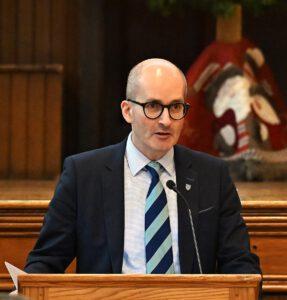 Prof. Noel Purdy OBE, Director of Research and Scholarship at Stranmillis University College, has been appointed to lead a major review of the Religious Education (RE) curriculum in Northern Ireland schools.
Prof. Noel Purdy OBE, Director of Research and Scholarship at Stranmillis University College, has been appointed to lead a major review of the Religious Education (RE) curriculum in Northern Ireland schools. 

